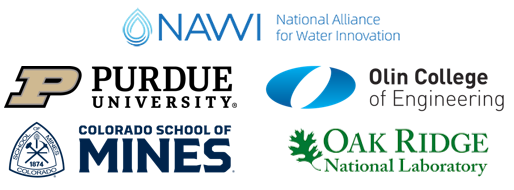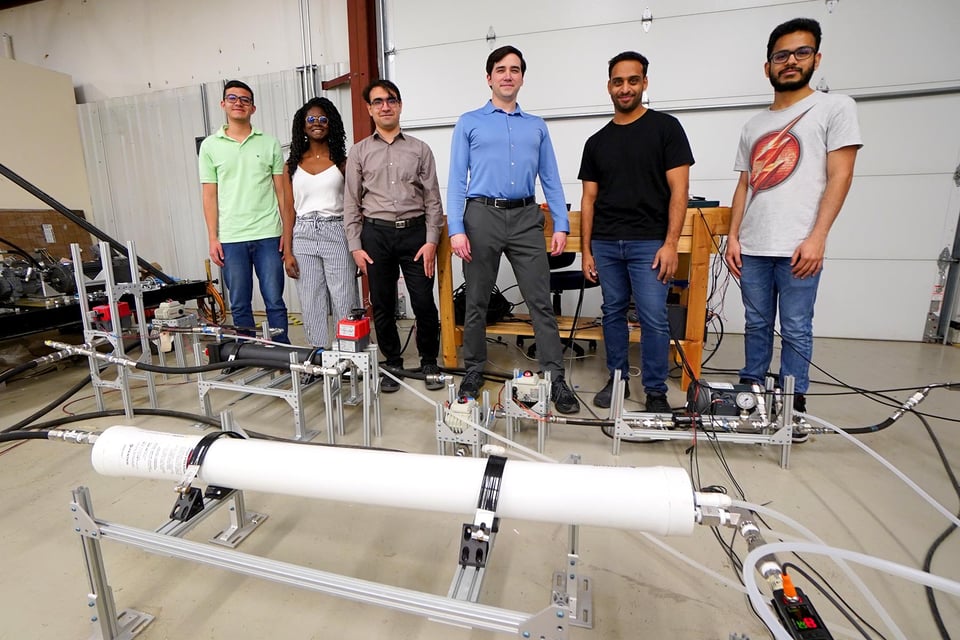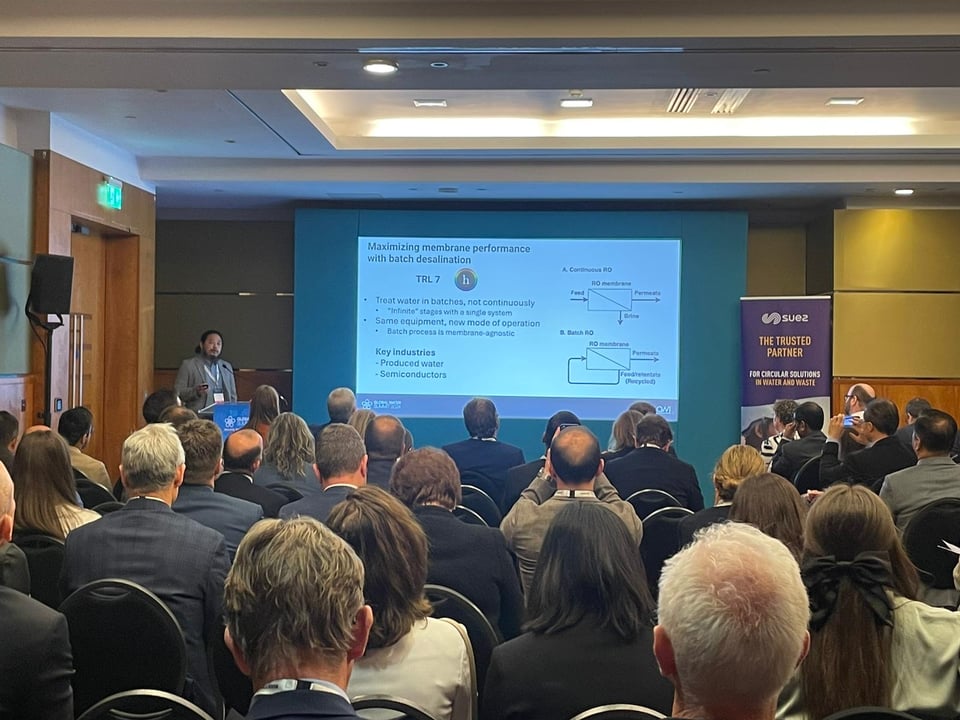Work commences on retrofit pilot project, water research hub renewed
Our largest pilot and first retrofit is funded by the National Alliance for Water Innovation (NAWI), which was recently renewed for an additional 5 years, $75M in funds

Harmony Desalting was cleared to start work on a National Alliance for Water Innovation (NAWI) pilot project this March. The pilot project represents an important step in scaling up RO batch processes and also serves as the first example of a plant retrofit. The 40 gpm (220 m³/day) plan is scheduled to commence operations in Golden, Colorado later this fall. The project is led by teams at Purdue University and Colorado School of Mines with contributions from Oak Ridge National Laboratory and Olin College of Engineering. Harmony Desalting is advising on system design and is responsible for delivering the bladders and control system which will enable energy-efficient and scaling-resistance desalting.

This project includes several scale-up milestones. It will be our largest project to date and the first to place multiple membrane pressure vessels in parallel. This is a necessary step to scaling up to full-scale installations which feature tens of vessels in parallel. Harmony has been working with Mass Product Development to improve the design and manufacturing of the batch bladders. This pilot will feature our longest bladders to-date (3 meters long), matching the form factor expected in large-scale plants. We are eager to show potential customers the effectiveness and reliability of this critical component.

There is 100 million m³/day of installed desalination capacity worldwide, with about 4 million m³/day of capacity being added in the last year. Harmony plans to deploy the RO batch process in newly constructed desalination plants, but also recognizes significant opportunity to retrofit older plants equipped with low-efficiency motors, pumps, and energy recovery devices. This pilot will show that a standard RO system (an unused brackish RO skid donated by an oil/gas company) can be easily retrofitted to operate a batch process.
This pilot will also feature a hybrid design, allowing for researchers to switch operating modes between a single-acting bladder and a double-acting piston. Researchers will measure the performance of each design and compare their economic viability in various applications.
The research project also includes an investigation of fouling and scaling in batch processes. Bench-scale experiments will be used to inform safe operating conditions for the pilot and to derive insight on the rate of scale nucleation in dynamic membrane processes.
We are grateful to NAWI for supporting this work and are excited that the U.S. Department of Energy has renewed the desalination research hub for a second phase which will last five years and include an additional $75 million in research funds, with a particular focus on piloting innovative desalination technologies.
Harmony founder/CEO Quantum Wei spoke at the Global Water Summit in London this April at the "Twelve technologies for industrial efficiency" session. It was a rapid-fire session, with three minutes to pitch followed by three minutes of questions. The trip to Europe continued with visits to the Cologne Membrane Lab and Suez.

